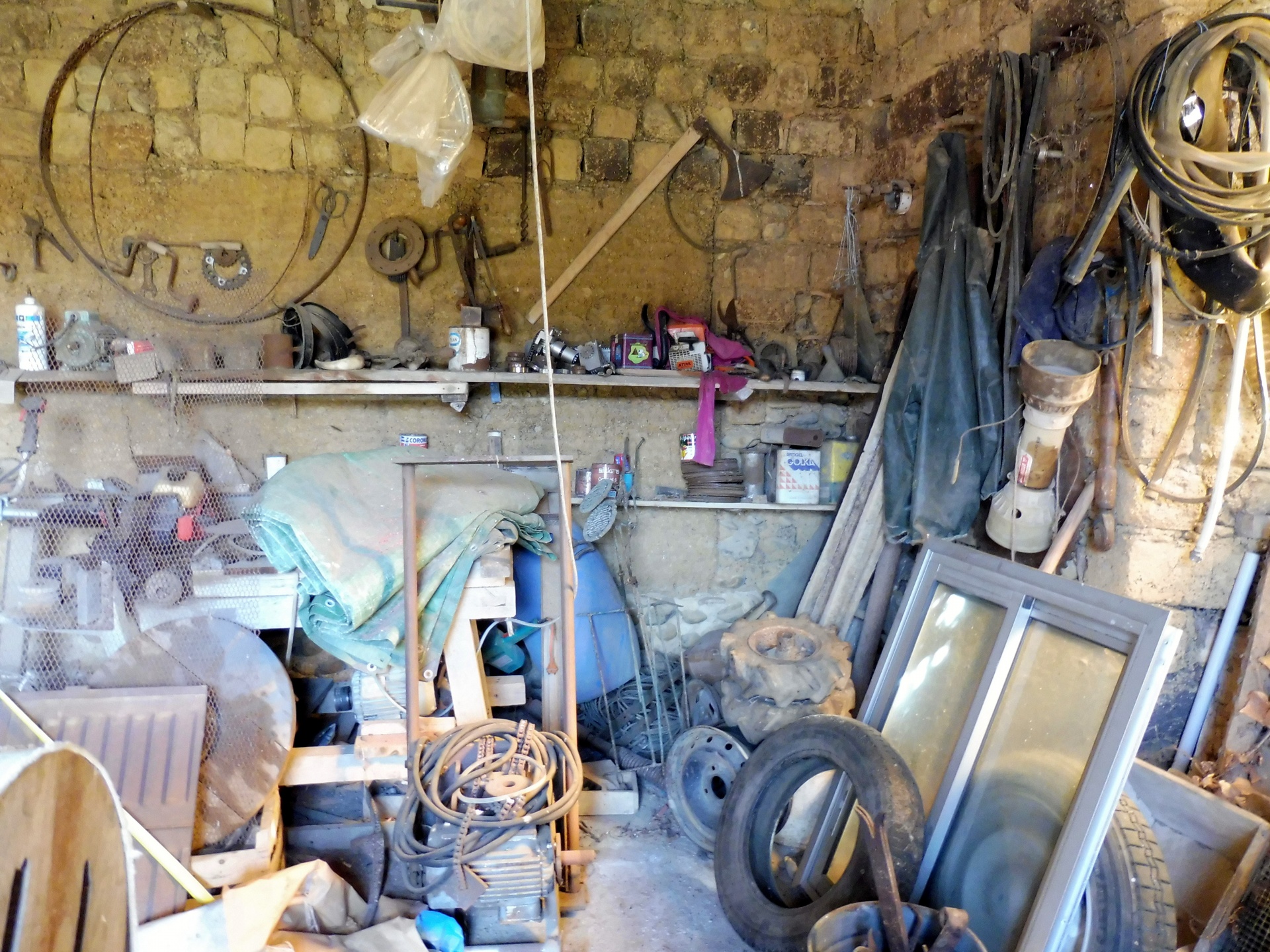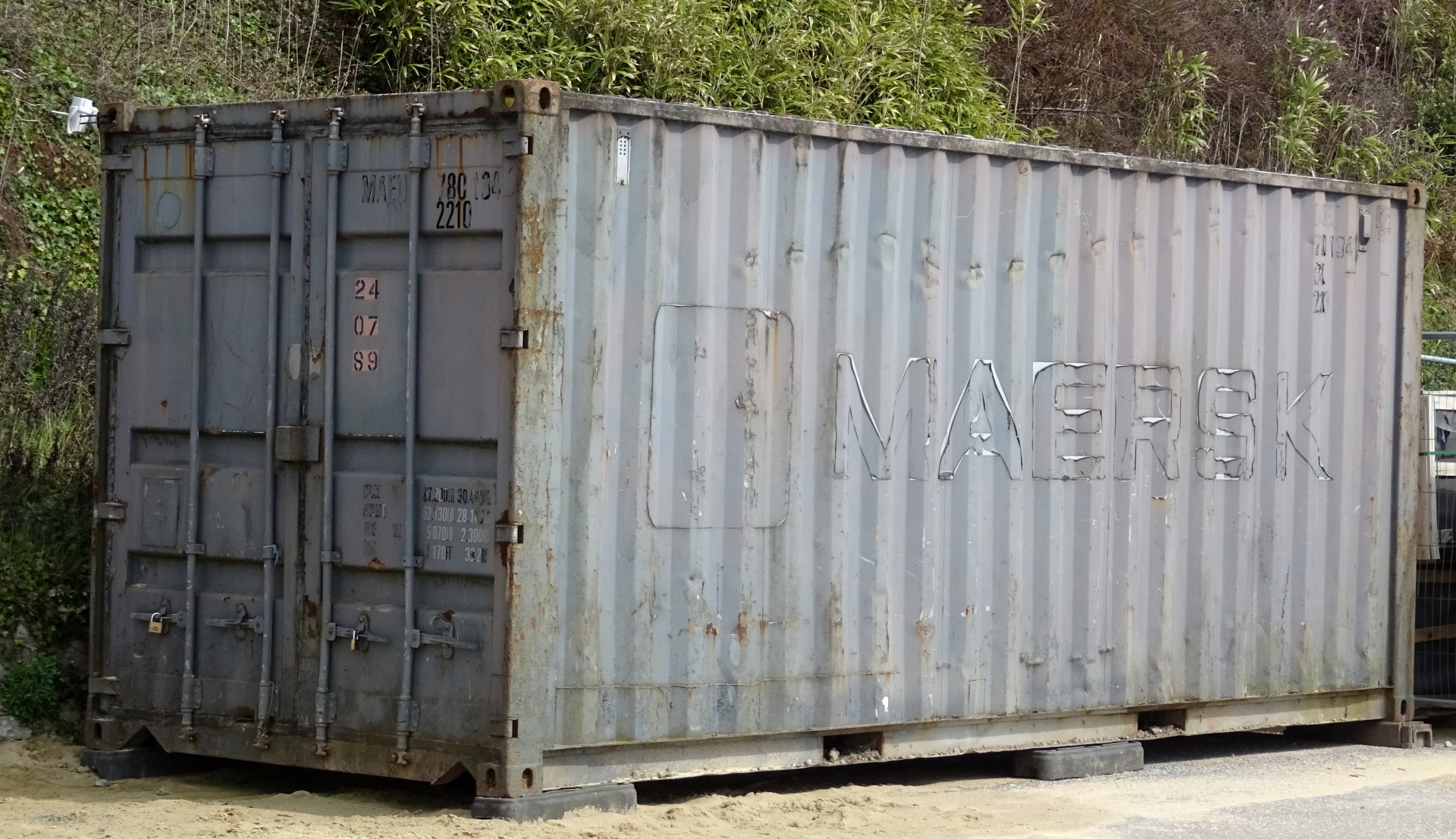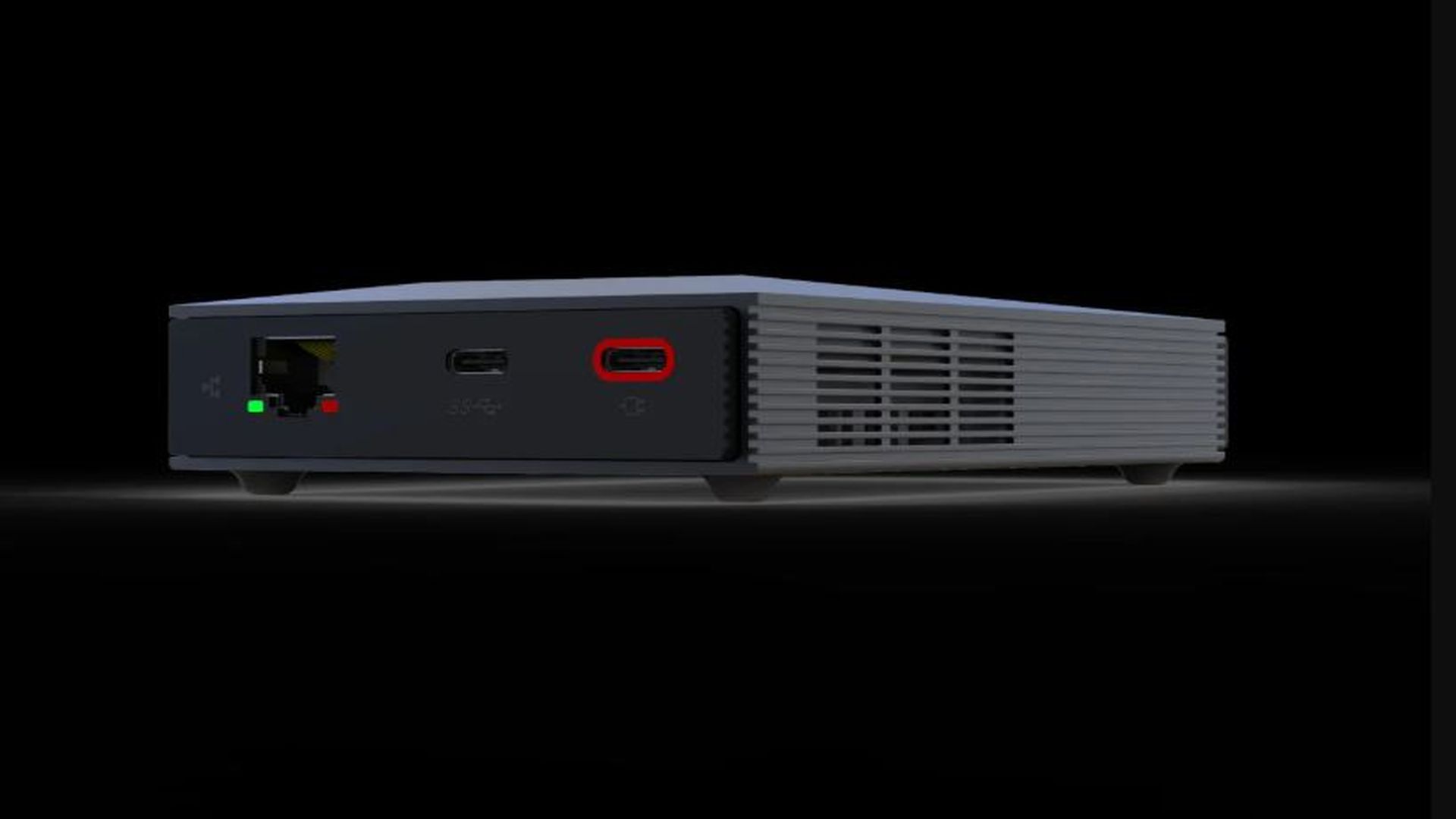**In an increasingly digital world, access to information is paramount, and nowhere is this truer than in the complex realm of law. For decades, legal research was a painstaking, often expensive endeavor, largely confined to specialized libraries and proprietary databases. However, a quiet revolution has been underway, spearheaded by initiatives like Courtlistener, which has fundamentally transformed how legal professionals, journalists, academics, and the general public interact with the law. At its heart lies an immense and ever-growing digital repository – the very essence of Courtlistener's impressive data storage – democratizing access to the vast landscape of American jurisprudence.** This article delves into the remarkable capabilities of Courtlistener, exploring the sheer scale and meticulous organization of its legal data. We will uncover how this platform, an initiative of the Free Law Project, serves as an indispensable tool for navigating millions of legal opinions, federal court filings, and judicial records. From its comprehensive search functions to its commitment to open access, Courtlistener stands as a beacon for transparency and efficiency in legal research, proving that high-quality legal information can, and should, be available to everyone.
**Table of Contents** * [The Digital Vault of Justice: Understanding Courtlistener's Core Storage](#the-digital-vault-of-justice-understanding-courtlisteners-core-storage) * [Beyond Opinions: A Multi-Faceted Legal Data Repository](#beyond-opinions-a-multi-faceted-legal-data-repository) * [Millions of Opinions: Federal, State, and Specialty Courts](#millions-of-opinions-federal-state-and-specialty-courts) * [The PACER Problem Solved: RECAP Archive and Federal Filings](#the-pacer-problem-solved-recap-archive-and-federal-filings) * [Voices of Justice: Oral Argument Recordings](#voices-of-justice-oral-argument-recordings) * [The Bench: A Comprehensive Database of Judges](#the-bench-a-comprehensive-database-of-judges) * [Navigating the Legal Landscape: Courtlistener's Search and Accessibility](#navigating-the-legal-landscape-courtlisteners-search-and-accessibility) * [The Engine Room: How Courtlistener's Storage Stays Current](#the-engine-room-how-courtlisteners-storage-stays-current) * [Powering Open Access: The Free Law Project Initiative](#powering-open-access-the-free-law-project-initiative) * [Real-World Impact: Case Studies from the Courtlistener Archive](#real-world-impact-case-studies-from-the-courtlistener-archive) * [Democratizing Legal Information: Why Courtlistener Matters](#democratizing-legal-information-why-courtlistener-matters) * [Sustaining the Vision: Supporting Courtlistener's Future Storage and Growth](#sustaining-the-vision-supporting-courtlisteners-future-storage-and-growth)
**Table of Contents** * [The Digital Vault of Justice: Understanding Courtlistener's Core Storage](#the-digital-vault-of-justice-understanding-courtlisteners-core-storage) * [Beyond Opinions: A Multi-Faceted Legal Data Repository](#beyond-opinions-a-multi-faceted-legal-data-repository) * [Millions of Opinions: Federal, State, and Specialty Courts](#millions-of-opinions-federal-state-and-specialty-courts) * [The PACER Problem Solved: RECAP Archive and Federal Filings](#the-pacer-problem-solved-recap-archive-and-federal-filings) * [Voices of Justice: Oral Argument Recordings](#voices-of-justice-oral-argument-recordings) * [The Bench: A Comprehensive Database of Judges](#the-bench-a-comprehensive-database-of-judges) * [Navigating the Legal Landscape: Courtlistener's Search and Accessibility](#navigating-the-legal-landscape-courtlisteners-search-and-accessibility) * [The Engine Room: How Courtlistener's Storage Stays Current](#the-engine-room-how-courtlisteners-storage-stays-current) * [Powering Open Access: The Free Law Project Initiative](#powering-open-access-the-free-law-project-initiative) * [Real-World Impact: Case Studies from the Courtlistener Archive](#real-world-impact-case-studies-from-the-courtlistener-archive) * [Democratizing Legal Information: Why Courtlistener Matters](#democratizing-legal-information-why-courtlistener-matters) * [Sustaining the Vision: Supporting Courtlistener's Future Storage and Growth](#sustaining-the-vision-supporting-courtlisteners-future-storage-and-growth)
The Digital Vault of Justice: Understanding Courtlistener's Core Storage
At its essence, Courtlistener is a free legal research website, but to merely call it that would be to undersell its profound impact and the sheer scale of its operations. It functions as a monumental digital vault, meticulously collecting, organizing, and making accessible an unparalleled volume of legal information. The core of Courtlistener's value lies in its comprehensive **storage** of legal documents, opinions, and related data, serving as a critical resource for anyone seeking to understand the intricacies of the American legal system. Imagine a library so vast that it contains virtually every significant legal opinion issued by federal and state courts across the United States. Now, imagine that library is not only fully digitized but also instantly searchable, allowing users to pinpoint specific cases, track legal developments, or conduct deep analytical research with unprecedented ease. This is precisely what Courtlistener offers. Its robust infrastructure is designed to handle tens of thousands of new items added daily, processing this influx of data to send hundreds of personalized alerts to users monitoring cases or specific search terms. On any given day, Courtlistener serves over a million people, a testament to its efficiency and the critical need it fulfills in the legal information ecosystem. This daily activity underscores the continuous expansion and dynamic nature of Courtlistener's data **storage**.Beyond Opinions: A Multi-Faceted Legal Data Repository
While legal opinions form the bedrock of Courtlistener's offerings, its true power lies in the diversity and depth of its legal data repository. It's not just about case law; it's about providing a holistic view of the legal landscape, integrating various data types into a single, searchable platform. This multi-faceted approach to data **storage** ensures that users can conduct comprehensive research without having to jump between multiple, often siloed, resources.Millions of Opinions: Federal, State, and Specialty Courts
The backbone of Courtlistener's extensive **storage** is its collection of legal opinions. The platform currently houses more than 10 million legal opinions, encompassing rulings from federal courts, state courts, and various specialty courts. This vast collection provides an invaluable historical record and a real-time snapshot of judicial pronouncements across the nation. Whether you're a lawyer preparing for a complex litigation, a journalist investigating a landmark ruling, or an academic studying legal trends, having immediate access to such a comprehensive corpus of opinions is transformative. It allows for quick retrieval of precedents, understanding the evolution of case law, and cross-referencing decisions across different jurisdictions. The sheer volume ensures that researchers are unlikely to miss a critical opinion relevant to their work.The PACER Problem Solved: RECAP Archive and Federal Filings
One of Courtlistener's most significant contributions to open legal information is its integration with the PACER (Public Access to Court Electronic Records) system through the RECAP Archive. PACER, while a crucial source of federal court documents, is notoriously difficult to navigate and, more importantly, charges users per page for access. This fee-based system often creates a barrier to entry for individuals and smaller organizations, hindering transparency and public access to federal court filings. Courtlistener, through its RECAP Archive, offers a revolutionary solution. RECAP is an online archive and a free browser extension (available for Firefox, Chrome, and Safari) that dramatically improves the experience of using PACER. Once installed, every docket or PDF document a user purchases on PACER is automatically added to the RECAP Archive. Crucially, anything someone else has already added to the archive becomes available to all users for free. This crowdsourced approach has led to a massive and continually growing collection, with more than 14 million documents from the federal PACER system already residing in Courtlistener's **storage**. While you cannot retrieve PACER documents that are not already in the archive, new PACER documents are added every single day, steadily expanding this invaluable free resource and making the opaque PACER system far more accessible.Voices of Justice: Oral Argument Recordings
Beyond written opinions and filings, Courtlistener also provides a unique auditory dimension to legal research: oral argument recordings. The platform boasts an impressive **storage** of 3,286,596.25 minutes of oral argument recordings. These recordings offer a rare glimpse into the live deliberations and questioning that occur before a court renders its decision. For legal scholars, students, and even the general public, listening to these arguments can provide deeper insights into the nuances of a case, the judges' lines of questioning, and the attorneys' advocacy styles. It adds a human element to the otherwise textual nature of legal research, allowing users to hear the actual discourse that shapes legal outcomes.The Bench: A Comprehensive Database of Judges
Understanding the judiciary is as important as understanding the law itself. Courtlistener recognizes this by maintaining a comprehensive database of 16,191 judges. This database, a significant component of Courtlistener's structured **storage**, allows users to research judges, examine their past rulings, and understand their judicial philosophies. For attorneys, this information is invaluable for case strategy; for journalists, it provides context for judicial appointments and decisions; and for academics, it offers rich data for empirical legal studies. This focus on judicial data underscores Courtlistener's commitment to providing a complete picture of the legal system, extending beyond just the documents to the individuals who shape the law.Navigating the Legal Landscape: Courtlistener's Search and Accessibility
The true utility of such a vast data **storage** lies in its accessibility and the ability to efficiently retrieve specific information. Courtlistener excels in this regard, offering a fully searchable platform designed with user experience in mind. Users can search for and browse the latest case law, PACER documents, judges, and oral arguments with remarkable precision. The search functionality is robust, allowing for complex queries that can pinpoint specific legal phrases, case names, or even concepts. Beyond simple searches, Courtlistener offers features that significantly enhance the research experience. Users can create alerts to monitor specific cases or search terms, ensuring they stay up-to-date with developments as they happen. This proactive notification system is a game-changer for lawyers tracking ongoing litigation or journalists following a developing story. Furthermore, signing into Courtlistener unlocks additional features like the ability to add notes to documents, further personalizing the research process. This seamless integration of search, alerts, and personalization transforms a massive data archive into a dynamic and highly functional research tool.The Engine Room: How Courtlistener's Storage Stays Current
The legal landscape is not static; new cases are filed, opinions are issued, and arguments are heard daily. For a legal research platform to be truly valuable, its data **storage** must be continuously updated and current. Courtlistener's "engine room" is designed precisely for this purpose. The platform is updated automatically with the latest court documents, ensuring that users always have access to the most recent information. On a good day, Courtlistener sees tens of thousands of new items added to its repository. This constant influx of data is meticulously processed and integrated, allowing the platform to send hundreds of alerts to users monitoring cases or search terms. This automated, high-volume update mechanism is critical. It means that lawyers can rely on Courtlistener for the very latest precedents, journalists can report on breaking legal news with confidence, and academics can analyze real-time legal trends. This commitment to real-time data ingestion is a cornerstone of Courtlistener's reliability and its ability to serve over a million people effectively.Powering Open Access: The Free Law Project Initiative
It's crucial to understand that Courtlistener is not a commercial venture driven by profit. It is an initiative of the Free Law Project, a 501(c)(3) nonprofit organization. This fundamental aspect underpins its mission and operational philosophy. The Free Law Project is dedicated to creating free, public access to legal information, believing that the law should be accessible to everyone, regardless of their ability to pay. This non-profit status directly impacts how Courtlistener operates and manages its vast data **storage**. Instead of erecting paywalls, it actively seeks to tear them down, particularly with initiatives like the RECAP Archive, which directly counters the fee-based model of PACER. The Free Law Project's commitment extends to providing free legal bulk data for federal and state case law, dockets, oral arguments, and judges. This open data approach benefits researchers, developers, and anyone interested in analyzing legal trends on a grand scale. Their work includes compiling a complete Supreme Court corpus and what is arguably the most comprehensive database of American judges, all made available for public good. This ethos of open access is what truly distinguishes Courtlistener in the legal tech space.Real-World Impact: Case Studies from the Courtlistener Archive
The true measure of Courtlistener's value isn't just the volume of its data **storage** but its practical utility in real-world scenarios. The platform provides immediate access to documents and rulings that have tangible impacts on individuals and corporations alike. Let's look at a few examples gleaned from the Courtlistener archive itself, illustrating its diverse applications: * **Corporate Litigation and Insurance Coverage:** Consider a scenario involving a "12 letter filed by Roberto Mata" concerning "Lefland, counsel of record for Avianca, Inc." Such a document, readily available on Courtlistener, could detail a court order for Avianca to "provide a copy of any policy of liability insurance arguably providing coverage for plaintiff's claim within 14 days, together with a letter response to the letter of May 5, 2022." For legal teams, this immediate access to court orders and related correspondence is critical for compliance and strategic planning. * **Antitrust Settlements:** The archive also sheds light on significant financial settlements, often resulting from complex litigation. For instance, Courtlistener can provide details on major antitrust settlements, such as those involving food industry giants: "JBS $20 million," "Smithfield $42 million," "Smithfield Foods, Inc. $75 million," "Seaboard Foods LLC $9.75 million," and "Hormel Foods $2.249 million." These figures, and the underlying legal documents, are invaluable for economists, consumer advocates, and businesses tracking market behavior and legal liabilities. * **Immigration Law and Judicial Oversight:** Courtlistener provides critical insights into cases challenging governmental actions. For example, the platform details how "The judge in the Abrego Garcia case slaps down, with some heat, the gov’t’s request for a stay of its order to return Garcia to the US." This highlights the judiciary's role in checking executive power. Similarly, the platform reveals instances where a "Federal judge finds Florida AG James Uthmeier in contempt of court" or where "Boy Wonder told cops that the court order saying he couldn't enforce FL's facially illegal immigration law might apply to him, but they were free to keep enforcing it." These examples underscore Courtlistener's ability to provide transparency into the judicial process, holding public officials accountable and informing the public about critical legal challenges. * **Constitutional Checks and Balances:** The platform also hosts discussions and analyses on broader legal themes, such as "Checking a presidential bully: do Congress and the courts have adequate tools to rein in Trump’s scattershot use of executive power," as highlighted by a guest blog from David Post. This demonstrates Courtlistener's role not just as a data repository but as a platform for legal discourse and analysis, contributing to public understanding of constitutional law and governance. These instances, directly referenced within Courtlistener's own descriptions, vividly illustrate how its comprehensive **storage** of legal information serves as a vital resource for understanding, analyzing, and even influencing real-world legal outcomes.Democratizing Legal Information: Why Courtlistener Matters
In an era where information is power, the accessibility of legal data is fundamental to a just and transparent society. Courtlistener's profound significance lies in its mission to democratize legal information. For too long, comprehensive legal research was a privilege, accessible primarily to those who could afford expensive subscriptions to proprietary databases. This created a knowledge gap, limiting the ability of individuals, small businesses, and even non-profits to fully understand their rights, obligations, and the legal landscape impacting their lives. Courtlistener directly addresses this disparity. By offering a free, fully searchable platform with an immense **storage** of legal documents, it empowers: * **Pro Se Litigants:** Individuals representing themselves in court can research relevant case law and understand legal procedures. * **Small Law Firms and Solo Practitioners:** They gain access to resources comparable to those of large firms without prohibitive costs. * **Journalists:** They can quickly verify facts, research legal precedents for investigative reporting, and understand complex legal arguments. * **Academics and Researchers:** They have a vast corpus of data for empirical studies, legal history, and policy analysis. * **The General Public:** Anyone curious about a specific case, a judge, or a legal topic can explore the actual documents that shape the law. The platform's explicit goal to make the PACER legal records system more accessible through the RECAP Archive is a powerful example of this democratization. As the provided data states, "The PACER legal records system is hard to navigate, but Courtlistener and its RECAP archive provide an accessible alternative." This commitment to breaking down barriers to legal information is not just about convenience; it's about fostering a more informed citizenry and a more equitable legal system.Sustaining the Vision: Supporting Courtlistener's Future Storage and Growth
The impressive scale and impact of Courtlistener are not achieved without significant effort and resources. As a non-profit initiative of the Free Law Project, Courtlistener relies heavily on community support to sustain its operations and fuel its future growth. The platform's ability to maintain its vast data **storage**, update it automatically, and continuously enhance its search and API functionality is directly tied to the generosity of its users and advocates. The call to action is clear: "Your support has grown Courtlistener to over 10 million opinions, with improved search and API functionality." This highlights the direct correlation between community contributions and the platform's ability to expand its offerings and improve its services. The Free Law Project explicitly invites users to "Help us continue expanding and enhancing access to the law" and urges them to "Donate before the end of 2024 to power free and open legal information for everyone." This ongoing need for support underscores the reality that maintaining such a comprehensive and freely accessible legal database is a continuous endeavor. Every contribution helps ensure that this invaluable resource can continue to grow, add more data to its **storage**, and serve an ever-increasing number of people seeking to understand and engage with the law.Conclusion
Courtlistener stands as a monumental achievement in the realm of legal technology and open access. Its vast and meticulously organized **storage** of legal opinions, federal court filings, oral argument recordings, and judicial data has fundamentally transformed how legal information is accessed and utilized. From empowering seasoned legal professionals to informing the curious public, Courtlistener, through the dedicated efforts of the Free Law Project, has become an indispensable tool for navigating the complexities of the American legal system. By providing a free, comprehensive, and continuously updated resource, Courtlistener not only streamlines legal research but also champions the vital principle that the law should be transparent and accessible to all. Its innovative solutions, such as the RECAP Archive, directly address long-standing barriers to information, fostering a more informed and equitable society. As we look to the future, the continued growth and enhancement of Courtlistener's capabilities depend on collective support. We encourage you to explore Courtlistener's powerful features for your legal research needs. If you find value in its mission to democratize legal information, consider supporting the Free Law Project to ensure this vital resource continues to thrive and expand its invaluable **storage** for generations to come. Your engagement, whether as a user or a supporter, directly contributes to a more open and just legal landscape.

